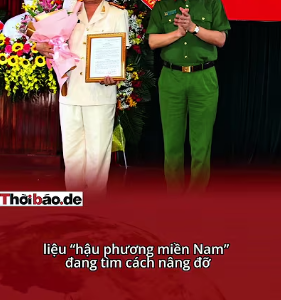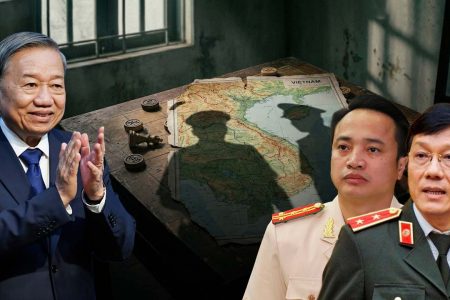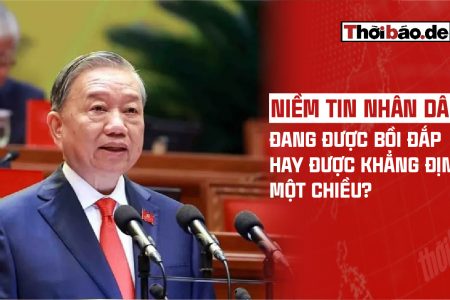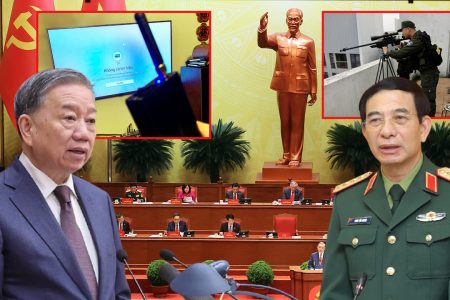
German warship visits Vietnam
On January 6, the German frigate Bayern docked in Ho Chi Minh City to make a four-day visit to Vietnam. This is the first time a German warship has called at a Vietnamese port since the two countries established diplomatic relations in 1975. The press release of the German Embassy in Hanoi said that the deployment of the Bayern ship „emphasized,“ security aspects in the Indo-Pacific policy guideline” which was adopted by the German government in September 2020 following similar steps by other European countries (1).
Previously, on December 15, 2021, the frigate Bayern entered the South China Sea (Vietnam calls it the East Sea) for the first time in nearly 20 years. It is a move that shows Berlin joining other Western nations in expanding their military presence in the region amid growing alarm about China’s territorial ambitions. Other countries including Britain, France, Japan, Australia, and New Zealand are also expanding operations in the Pacific to counter China’s influence.
The frigate Bayern is the first German warship to pass through the South China Sea since 2002. This is an area where 40% of Europe’s foreign trade passes. Officials in Berlin announced that the German navy would stick to the common trade routes.
China claims almost all of the South China Sea, despite an international court ruling in 2016 that Beijing has no legal basis for these claims, and has built military outposts on artificial islands in the sea which has many rich oil and fishery fields.
The sending of ships to the region by Germany comes in the context that a number of major European countries such as Britain and France have also announced the Indo-Pacific strategy. Both countries sent frigates, submarines, or even aircraft carriers to the area last year and passed through the South China Sea, where China is making unreasonable claims.
The context of Vietnam – Germany relations
Vietnam and Germany began to establish diplomatic relations on September 23, 1975. Vietnam established diplomatic relations with the German Democratic Republic on February 3, 1955, and maintained good relations until the reunification of Germany. After establishing diplomatic relations in 1975, the two countries have taken a number of steps to develop relations such as exchanging delegations, preparing to negotiate agreements on scientific and technological cooperation, building a number of projects, etc. Since 1990, The relationship between Vietnam and Germany has developed rapidly. The two sides promoted the exchange of many high-level delegations and deepened cooperation in many fields, especially politics, economy, education-training, science and technology, culture, security, etc. To create a framework for cooperation, Vietnam and Germany signed an Agreement on Cultural Cooperation (1990), Agreement on Investment Promotion and Protection (1993), Agreement on Aviation Cooperation (1994), Agreement on Cooperation in Investment and Development of Vietnam. Maritime Affairs (1995), Agreement on the Return of Citizens (1995), Agreement on Avoidance of Double Taxation (1996), and Agreement on Scientific-Technical Cooperation (1999).
In October 2011, on the occasion of Prime Minister Angela Merkel’s official visit to Vietnam, the two countries signed the Hanoi Declaration on the establishment of a „strategic partnership for the future.“ The declaration includes a strategic action plan (SAP) that outlines priority areas for cooperation, namely politics-diplomacy, trade-investment, law, environment, media, culture, and technology. technology, and science and education.
According to the Hanoi Declaration, the two countries established the Strategic Operational Group (SSG) co-chaired by the Deputy Foreign Ministers of the two countries. The first meeting of the Vietnam-Germany Strategic Executive Group took place in Berlin on September 10, 2012.
Economic – commercial relations
Regarding economic and trade cooperation, Germany continues to be Vietnam’s largest trading partner in Europe with two-way turnover increasing steadily over the past 10 years. The two countries‘ trade turnover since 2010 has doubled, reaching over $10 billion with an average increase of over 10% per year.
In 2020, Vietnam overtook Malaysia and Singapore to become Germany’s largest trading partner in Southeast Asia, while Germany continues to maintain its position as Vietnam’s largest trading partner in the EU for many years.
In the field of investment, Germany has risen to third place in the EU with 391 valid projects with a total registered capital of more than $2.22 billion in 38 provinces and cities of Vietnam.
In the opposite direction, Vietnam has 41 investment projects in Germany with a value of more than $218 million. The EU-Vietnam Free Trade Agreement (EVFTA) which took effect from August 1, 2020, also helps businesses of the two countries have more favorable conditions to access each other’s markets, bringing benefits to both sides. (2).
Prospects of the Vietnam – Germany strategic partnership
Besides the development of economic – trade relations, Vietnam and Germany have similar views on major international issues such as globalization, counter-terrorism, reform of the United Nations…; support each other when running for positions at multilateral forums. Germany supports Vietnam’s accession to the WTO, strengthening all-round relations with Europe and the EU. Vietnam supports Germany to actively participate in regional cooperation in the Asia-Pacific and Germany-ASEAN cooperation.
For Germany, Vietnam is one of its most important partners in ASEAN. Strengthening relations with Vietnam is an important part of Germany’s policy towards the Indo-Pacific region, deployed on three pillars: Prosperity-Sustainability-Security (3).
However, in Vietnam-Germany relations, it is worth noting that defense and security cooperation is not a priority mentioned as a focus of the two countries‘ strategic partnership.
In a recent article, author Nguyen Hong Hai said that the lack of cooperation in the field of defense and security in the Vietnam-Germany relationship reflects the strategic priorities of the two countries at a time when the relationship between Vietnam and Germany was established (4). However, this will have to change as the world’s strategic landscape is changing.
In the past, Germany’s policy toward China has always been primarily economic. Only in recent years has it been gradually realized that the guiding principle in German-Chinese relations, „change through trade„, has not been as effective as expected. No amount of economic and trade cooperation can bring Beijing closer to Western liberal values, both domestically and internationally. As such, the German Foreign Ministry has emphasized its insistence on a rules-based order, including the United Nations Convention on the Law of the Sea (UNCLOS) and recognition of the 2016 Arbitral ruling which states that China has no legal basis or historical claim in the South China Sea through its „nine-dash line.“
Vietnam has always proved to be a resilient nation against China’s ambitions in the South China Sea. In recent years, due to dissatisfaction with China’s actions in the sea, Vietnam has tried to break free from China’s dependence and move closer to the US and Western countries. Along with the threat of China through the „Belt and Road“ Initiative, Vietnam and Germany have found common ground in the development of relations between the two countries, including in the field of security and national defense.
Germany has always endorsed Vietnam’s position in resolving disputes through peaceful means and implementing a rules-based international order in the South China Sea. This consensus on interests creates a clear impetus for Vietnam and Germany to expand their strategic partnership, including defense and security cooperation in a more substantive direction, although progress in this area is still slow.
The visit of the Bavarian ship at the port of Ho Chi Minh City in the first days of 2022 is a signal that the defense cooperation relationship between Vietnam and Germany will develop further in the near future, especially in the naval field in the coming time. According to author Nguyen Hong Hai, further strengthening defense cooperation will be the next step in upgrading the current strategic partnership to a comprehensive strategic partnership within a three-year period when the two countries mark the 50th anniversary of the establishment of diplomatic relations, given the fact that Germany and Vietnam are both each other’s largest trading partners in the EU and ASEAN.
Thoibao.de (Translated)
Notes
- https://twitter.com/GermanyinHanoi/status/1479841496958267395?s=20
- https://baoquocte.vn/quan-he-doi-tac-chien-luoc-viet-nam-duc-thuc-chat-hieu-qua-va-ben-vung-161289.html
- https://baotintuc.vn/thoi-su/nhieu-du-dia-de-phat-trien-quan-he-song-phuong-viet-namduc-20211016095835847.htm
- https://thediplomat.com/2022/01/the-vietnam-germany-strategic-partnership-takes-another-step-forward/


























